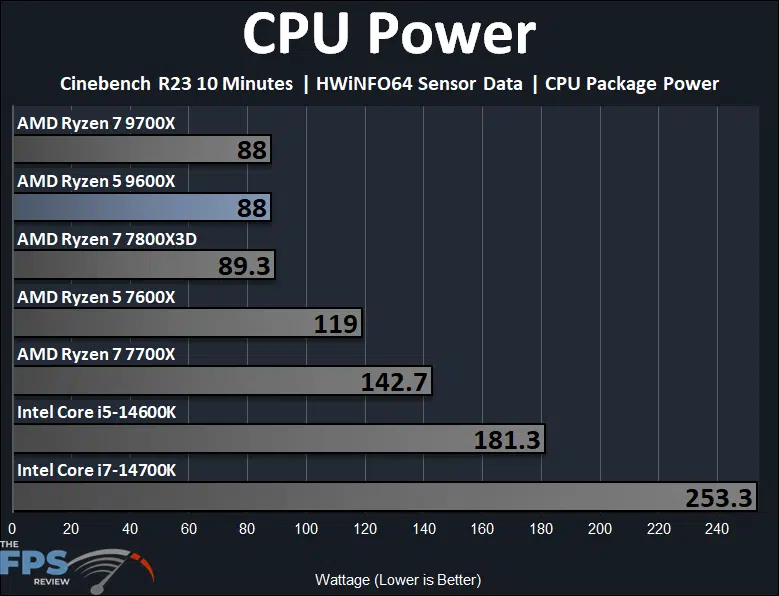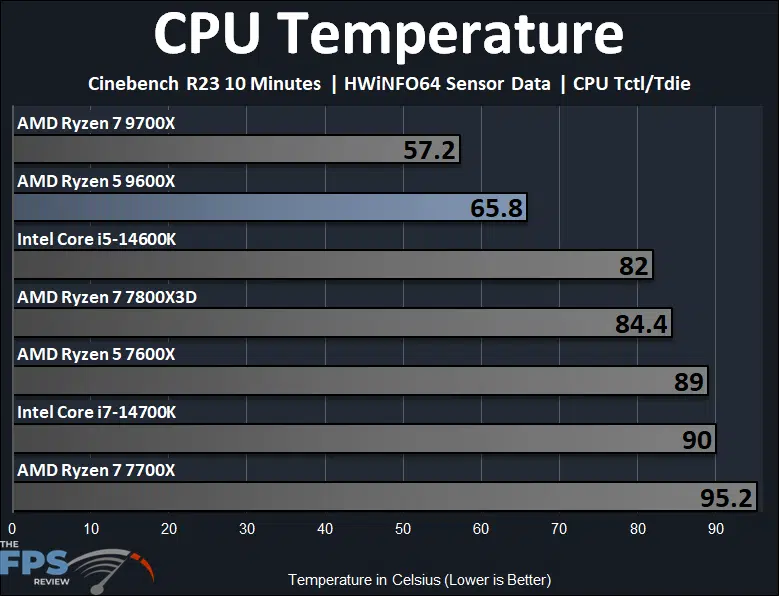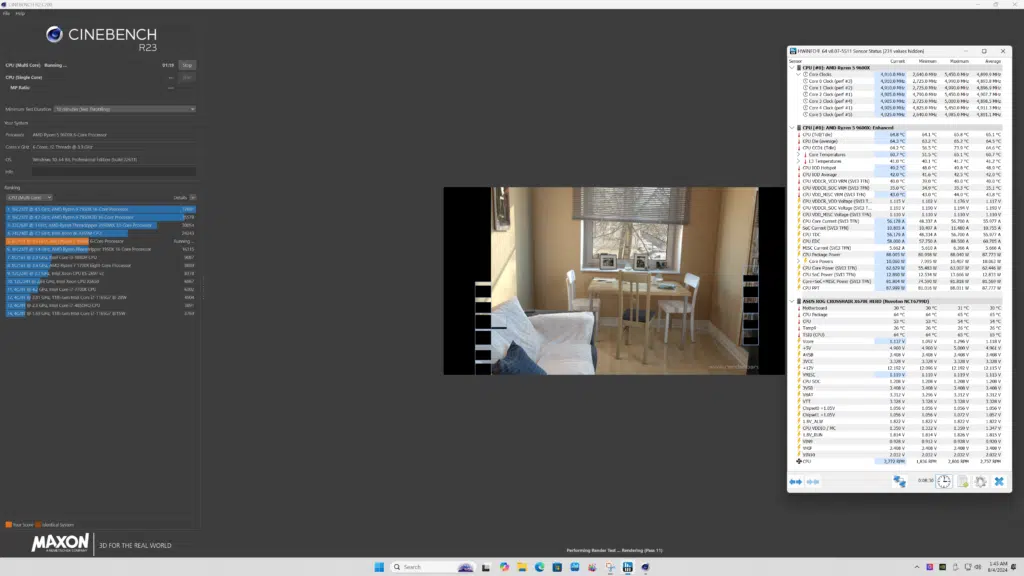Power Temperature and Frequency
On this page, we are going to investigate the AMD Ryzen 5 9600X power draw, temperature, and frequency. This is a stress test, which means we are pushing each CPU to its maximum potential in all-core load in the Cinebench R23 multi-core test for 10 minutes.
Power
We use HWiNFO64 sensor data to record the results. We report on the sensor data for “Package Power” in Wattage.

This graph speaks loudly. The TDP of the new AMD Ryzen 5 9600X is 65W, but of course, TDP is not power draw, but rather the thermal capacity it is rated for. As we can see, in testing the Package Power the AMD Ryzen 5 9600X hits 88W at maximum Package Power Wattage. This is a 26% lower power draw than the AMD Ryzen 5 7600X, yet more performance in our testing. If we compare this then to the competition, the AMD Ryzen 5 9600X draws 51% less power than the Intel Core i5-14600K. Simply put, power efficiency is a key point of the AMD Ryzen 7 9700X, and Ryzen 5 9600X CPUs. It is real, and it is effective.
Temperature
We use HWiNFO64 sensor data to record the results. We report on the sensor data for “Tcidle” in Celsius.

Note that the same AIO was used for all temperature testing, an MSI MEG Coreliquid S360 360mm AIO, which honestly is overkill for the new Ryzen 7 9700X and Ryzen 5 9600X. As we experienced above, the Package Power was only 88W.
The AMD Ryzen 5 9600X was running at a cool 65.8c temperature. This is 26% cooler than the AMD Ryzen 5 7600X was running at and 20% cooler than the Intel Core i5-14600K. It was warmer than the Ryzen 7 9700X by 13%. Core frequency plays a role here, and the Ryzen 7 9700X was running at 4.4GHz all-core/full-load while the Ryzen 5 9600X was running at 4.9GHz all-core/full-load active.
We reached out to AMD and AMD tells us this is expected behavior, and the reason is down to the all-core/full-load CPU frequency the CPU runs at. The AMD Ryzen 7 9700X has more cores spread out, that operate within the same power budget and therefore boost lower in clock frequency compared to the Ryzen 5 9600X, this accounts for the temperature differences. The Ryzen 5 9600X has fewer cores, and within this power budget runs at a faster frequency, thus heating up a bit more.
Frequency

The AMD Ryzen 5 9600X has a base clock of 3.9GHz and a boost frequency of up to 5.4GHz. In our testing, we experienced the all-core/full-load hitting 4.9GHz on all six cores and some even around 4.925GHz. If we compare this to the AMD Ryzen 5 7600X it was running at 5.225GHz all-core/full-load. Therefore, the AMD Ryzen 5 9600X is running about 6% lower on all-core/full-load clock speed frequency when all cores are active since it is at a lower package power. This starts to become even more impressive, as the Ryzen 5 9600X is faster in performance than the Ryzen 5 7600X.
In single-core/single-thread boosting performance, we experienced the AMD Ryzen 5 9600X hitting 5.45GHz, so it was hitting its target boosting frequency quite well.
